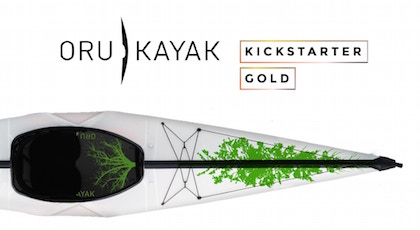CrowdStreet was founded in 2013 and is one of the top real estate crowdfunding platforms out there. They might sound familiar, as I wrote about them in my guide, Real Estate Crowdfunding Explained.
Thus far, they’ve raised a little over $5 million in VC funds to finance the company’s operations, with a recent $3.5 million Series A raise. In terms of the funds raised for real estate projects, they’ve helped raise over $1 billion through 60 offerings in their marketplace. On top of that, 47 sponsors have used their Sponsor Direct program to manage over $400 million of investment funds.
You might remember me doing an interview in the past with Darren Powderly, the cofounder of CrowdStreet. In this blog post, I want to go over some of the major benefits and drawbacks of using their platform to invest in real estate or raise capital to finance a property. I’ll also go into the nitty gritty elements of the platform and what you need to know about how they differ from other platforms out there.
The CrowdStreet Marketplace
CrowdStreet serves as a marketplace connecting real estate investors with sponsors, which are real estate management companies offering a investment opportunity based in the United States.
One of the things that distinguishes this marketplace from other real estate crowdfunding platforms is that CrowdStreet does not use any kind of special purpose vehicle as an intermediary between the pool of investors and the sponsor. Instead, the investors deal directly with the sponsors.
On the plus side, this means that you, as a sponsor, will have direct access to the contact information of your investors. You can use the investor CRM tool to communicate with your investors and update them on the status of the property. This is a huge benefit if you’re trying to develop a relationship with a group of investors and turn them into repeat investors for your future deals.
 Other real estate crowdfunding platforms tend to use special purpose vehicles to make it easier for sponsors, so that they don’t have to deal with so many investors. They just have to deal with the one LLC as a contact point (or the REC platform), and each investor has ownership in that LLC.
Other real estate crowdfunding platforms tend to use special purpose vehicles to make it easier for sponsors, so that they don’t have to deal with so many investors. They just have to deal with the one LLC as a contact point (or the REC platform), and each investor has ownership in that LLC.
Another big plus for CrowdStreet’s unique structure is the fact that you, as an investor, can develop a relationship with sponsors in the marketplace. It also eliminates the platform risk that comes with one single real estate crowdfunding website managing a bunch of different SPVs. Should the REC platform fail, it could become indeed become a messy situation.
While all of this sounds great, it’s important that investors realize the risks inherent with real estate crowdfunding opportunities. CrowdStreet does appear to do it’s best to secure the very best sponsors for their platform. The website states, “Less than 2% of all applications successfully pass through this process to go live on the CrowdStreet Marketplace”
Who can invest on CrowdStreet?
At the time of writing, only accredited investors can invest on CrowdStreet. An accredited investor is a high net-worth individual who has either an annual income of at least $200,000, or a net worth that adds up to at least $1 million, excluding their primary residence. If you’re married, you’ll need a joint annual income of at least $300,000.
Investors do not pay any type of fee to access these REC deals. If you’d like, you can invest in several different projects in various geographic regions. The site hosts both equity and debt deals.
What should investors keep in mind?
Personally, I think that it’s very important to keep in mind that these investments are largely illiquid and difficult to sell or trade. This is not a publicly traded marketplace.
You should also keep in mind that these are inherently longterm investments. If you’re investing in a debt opportunity, you’ll get interest payments. If it’s an equity deal, you might get profit distributions or an ROI when the property is sold.
The third big point that I’d like to highlight is that investment minimums are a bit higher on CrowdStreet than other platforms. According to the website, “The minimum investment on CrowdStreet is $25,000″
Lastly, you absolutely must do your homework. Just because a property is listed on CrowdStreet or any other platform does not mean it’s a good investment. There is no such thing as a “sure thing” in real estate investing or any other area.
Who can offer an investment opportunity on CrowdStreet?
CrowdStreet is quite flexible and is open to various types of real estate projects, including:
- Multifamily
- Retail
- Hospitality
- Medical Office
- Storage
- Industrial,
- And more.
These properties tend to be between $2-5 million in value. In the past, sponsors have typically listed between a $500,000 and $2 million funding goal.
You will need to go through a strict application process where the platform will evaluate your track record, background, and references. They’ll also conduct research regarding the asset that’s going to be offered on the platform and the proposed terms for the offering.
As as sponsor, you should expect to pay a posting fee to share the opportunity on the platform. Sponsors must also co-invest along side investors in the CrowdStreet marketplace, typically between 5% – 15% of total equity.
You can watch a full video of this application process here.
What is Sponsor Direct?
Sponsor Direct is a new feature that CrowdStreet rolled out in April of 2015. Basically, if you have access to a bunch of investors and don’t want to bring them into the CrowdStreet marketplace, you can use Sponsor Direct to license the software that powers CrowdStreet and do your own offering.
Using the software, you’ll be able to:
- Publish an offering to your website or to your own network of investors
- Enable bulk uploading of documents, like investor K-1s
- Offer the CrowdStreet CRM tool to your network
- Get access to the transaction center, which streamlines a lot of the investment process.
- And more.
A lot of readers were asking me to put together a step-by-step plan for launching a real estate crowdfunding website, which I did in my guide. Sponsor Direct is one of the options that I mentioned if you want a semi-white label solution. You just have to license the software that CrowdStreet as invested time in creating.
“One example of a CRE sponsor using the CrowdStreet platform is Farran Realty Partners based in Missoula, MT. Farran is a private real estate investment firm focused on creating meaningful value for its investors. They are using Sponsor Direct to provide an investor portal to their existing investor network and the Marketplace to raise additional capital from new investor relationships sourced online.” – Source.
Thus far, over $400 million has been transacted via Sponsor Direct.
Should you use CrowdStreet?
Overall, I think that CrowdStreet offers a compelling real estate crowdfunding platform for both sponsors and investors. They’ve really committed to the original version of real estate crowdfunding, and haven’t expressed any interest in getting into Crowdfunded REITS or other products that take them away from their original vision to connect investors directly with property managers.
The one downside that I see with CrowdStreet is its high minimum investment, which might prevent some onlookers from trying out their platform. On the flip side, it could also be its own form of vetting process to screen out amateur investors.
One of the reasons I wanted to have a member of the team on my podcast is because I think they’re doing a great job! I’m excited to see how their platform progresses in the next few years and how it evolves.
In conclusion, I’d definitely recommend checking out CrowdStreet and signing up for an account if you’re an accredited investor.
Keep in mind that I am a part of the company’s affiliate program, and receive a very small commission if you sign up for an account. To be honest, I’m a supporter of theirs and real estate crowdfunding anyway. Hope this post was helpful! Leave a comment if you have any questions.







